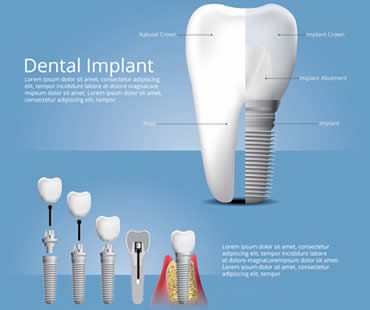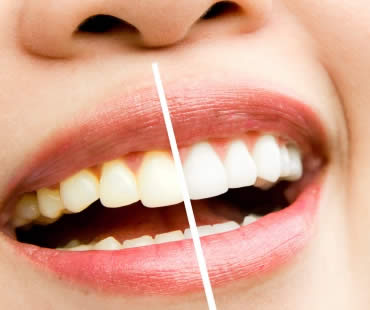
Aug 1, 2024 | Blog, Cosmetic Dentistry, Dental Topics 3
If you have kicked the smoking habit, congratulations!!! Your whole body thanks you, including your mouth. Now that you’ve tossed your tobacco, you may need some extra dental care to help with any damage that was created by using tobacco.
Teeth cleaning
Even if you practiced good dental hygiene during the time you used tobacco products, the chemicals likely still stained and damaged your teeth. Schedule an appointment with your dentist for a thorough cleaning. Sometimes an even deeper cleaning is recommended to get rid of stubborn plaque and discoloration.
Examination for oral health problems
Your dentist will also examine your mouth for signs of gum disease and other problems. If any infection is present, antibiotics may be prescribed. Other issues like exposed roots or cavities may require further treatment such as root canals. You want to take care of problems right away so that your mouth function and your smile will get better instead of worse.
Cosmetic procedures
After your teeth have been professionally cleaned and treated as necessary, you may want to consider cosmetic procedures if you’re still unhappy with your smile. Professional teeth whitening may help brighten your smile, or you might need something like dental implants to replace any teeth that couldn’t be saved. Veneers might also be helpful if your teeth are too discolored from long years of tobacco use. Let your dentist know if you have any additional goals for your smile, because there are likely additional treatments that could benefit you.
Do you live in Bingham Farms or the surrounding area? Our team is ready to help you achieve your smile goals. Schedule your appointment today.

Jul 4, 2024 | Blog, Cosmetic Dentistry, Dental Topics 3
Life is full of special moments. Whether your upcoming special moment is a class reunion, a birthday or even your wedding day, you’re going to want to look your best. Part of presenting your best self is having a great smile. If your smile needs some sprucing up, you should consider a smile makeover to make your special day even better.
It seems like only a short time ago that photos were taken on rolls of film, in sets of 24 or 36 exposures. Sometimes the same roll of film would be utilized over an entire year, to be economic. In today’s world, photos are taken virtually each day. Selfies have become more popular than ever, and online photo sharing sites leave people wanting to create the most beautiful, the most perfect images possible.
Having a smile makeover can be as subtle as teeth whitening, or as far-reaching as dental veneers. Advancements in dental materials, methodology and technology have allowed patients to benefit from entire-mouth overhauls in less time and with less discomfort than in the past.
Possessing an even, attractive smile can benefit you professionally as well as personally. A great smile brings with it an internal self-confidence that others can recognize. This self-confidence is very attractive, and can lead to many exciting opportunities.
If you’ve been thinking about improving your smile, now is the time. Look ahead to all those special days in front of you, and make a plan with your cosmetic dentist to have a better, more beautiful smile in place before your day arrives.
Take the first step towards optimal oral hygiene. Reserve your dental appointment at our Bingham Farms dental office now and experience personalized care.

Jun 13, 2024 | Blog, Dental Topics 3, Implant Dentistry
Dental implants have been in use for more than sixty years, and over that time period, they have risen in popularity among cosmetic dentists as the top-of-the-line tooth restoration for patients with missing teeth.
Dental implants have two main components: a screw-like base and a fabricated tooth-like replacement that sits on top of the screw. Typically the screw is made from titanium and is extremely durable. The screw is surgically implanted directly into the patient’s jawbone, and over time, it fuses directly into the bone. This process is known as osseointegration and it’s the reason dental implants are so successful.
This bond with the bone allows the implant to serve as a complete replacement for the roots of a missing tooth. Dental implants can be used to anchor a single tooth, a dental bridge or even serve as one of several secure implant anchors for dentures.
The bones of the jaw thrive through the stimulation of a tooth’s natural roots. Remove the roots and the bone begins to shrink. This is the reason dentures seem to shift over time. The denture is the same shape; it’s the bones that are changing. Because dental implants mimic tooth roots in the bone, the bone remains stimulated, and continues to be healthy, providing support for surrounding tooth roots and the patient’s facial bones.
Dental implants have a very high success rate. They look very much like natural teeth. They are stable and secure and are considered by many cosmetic dentists to be the best choice for replacing one or more missing teeth.
If you are missing a tooth and you want the best restoration available, talk to the cosmetic dentist in Bingham Farms about dental implants. You might be surprised to learn about all the benefits dental implants can offer you to replace your missing tooth.
Ready to transform your smile? Schedule your appointment today at our Bingham Farms dental office.

May 30, 2024 | Blog, Dental Topics 3, Family Dentistry
Every member of your family requires and deserves good oral health care. From the youngest to the oldest, each person should visit the dentist regularly. This is where a family dentist comes into your life. Family dentists treat all ages and a wide variety of conditions, providing your whole family with the specific treatments they need to achieve healthy, winning smiles.
Not every family dentist is the same. Because it should be a long-term relationship established with your family, make sure you choose the right one who meets all of your needs. Look for a practice with convenient hours and location, a clean and comfortable setting for your care, and the credentials for all aspects of your treatment.
Family dentists are focused on the hygiene and health of your smile. This includes thorough examinations, regular cleanings, fluoride treatments, gum disease therapy, cavity diagnosis and treatment, and even orthodontics.
The great thing about family dentistry is that it addresses dental health for every stage of life. Children have different concerns than their parents and their grandparents. Skilled family dentists provide complete oral care from baby teeth to permanent teeth to restorations for seniors.
Another qualification of family dentists is to recognize and handle dental fears in patients of all ages. Children may be afraid of the unfamiliar environment and sometimes scary equipment, so family dentists are trained to ease their fears through kindness and gentleness. Many of these specialists offer distractions for young patients like videos, music and books. It’s a goal of family dentistry to help children develop a lifelong positive attitude toward dental treatment. Kids aren’t the only patients with dental anxiety though, so family dentists also are able to address fears in adults and offer ways to increase their comfort level.
No matter the ages of your family members or their oral conditions, family dentists are qualified to treat the varying needs with skill and confidence.
Ready to transform your smile? Schedule your appointment today at our Bingham Farms dental office.

May 23, 2024 | Blog, Dental Topics 3, Family Dentistry
It seems that with each passing year, our lives become more hectic, scheduled, and harried. If you have children, there are the endless school events and music lessons and sports practices. Running from here to there can leave you less time for some of the most important things, like your oral hygiene.
Have you found yourself putting off your regular dental check-up? Has it been more than a year since you saw your dentist? Are your children up-to-date with their dental visits, but you’re falling behind? This can happen, especially as we place the care of others over the care of ourselves.
By choosing a family dentistry practice, this can be a thing of the past when it comes to your teeth! A family dentist can see each member of your family, from the youngest infant to the oldest retiree. All of your dental visits occur in the same office, so you won’t be jumping in the car to go yet somewhere else, stuck in traffic and feeling overwhelmed.
With family dentistry, you can schedule your appointments to have multiple family members seen back-to-back or at the same time. This is especially of interest to families with multiple children. Imagine having three or four appointments going on at the same time, and being done after the time of a single visit! Reduce the time you spend in the waiting room with squirming or unhappy children by choosing a family dentistry practice.
Your family dentist realizes that your time is extremely important, and that each member of your family is important and valued. A family dentist knows about all of the changes your teeth undergo over time, and is sensitive to this. It’s easy to make smile goals with your family dentist, as he or she will be there from the start to the finish.
Make the choice to simplify your life. Make it easy to keep you and your entire family smiling brightly. Choose a family dentistry practice today.
Ready to transform your smile? Schedule your appointment today at our Bingham Farms dental office.

May 9, 2024 | Blog, Cosmetic Dentistry, Dental Topics 3
Tetracycline is an antibiotic used to treat infection. While it works to fight certain illnesses, it can have a negative impact on your smile. If tetracycline is taken by pregnant women or by children while their teeth are still forming, the teeth will develop with dark stains. Usually, this medication produces brown or grayish discolorations that may cover all or part of the teeth.
People with tetracycline stains may feel self-conscious about their smiles. Your dentist can evaluate your case and discuss options for creating a gorgeous, new image. Treatments such as teeth whitening or porcelain veneers can remove stains and restore your smile.
In the past, teeth whitening was not a very effective therapy for tetracycline stains on teeth. Because the stains are intrinsic, which means they occur within the tooth, whitening didn’t always produce results. However, repeated chair side laser whitening sessions and deep bleaching products have worked in cases where the staining was not particularly dark.
The most common treatment with tetracycline stains is porcelain veneers. Made from thin shells of dental porcelain, veneers cover your teeth and produce a bright, white smile. Porcelain veneers are durable, stain-resistant, and designed to create naturally looking restorations.
With veneers, your doctor will first take impressions of your teeth to be sent to the dental lab that will handcraft your custom restorations. The dentist will then prepare the teeth for placement. Often, the dentist will place temporary veneers, which will give you a chance to preview your new look. Once the lab sends your permanent veneers to the office, you will need to return for minor adjustments and final placement.
Do you live in Bingham Farms or the surrounding area? Our team is ready to help you achieve your smile goals. Schedule your appointment today.






